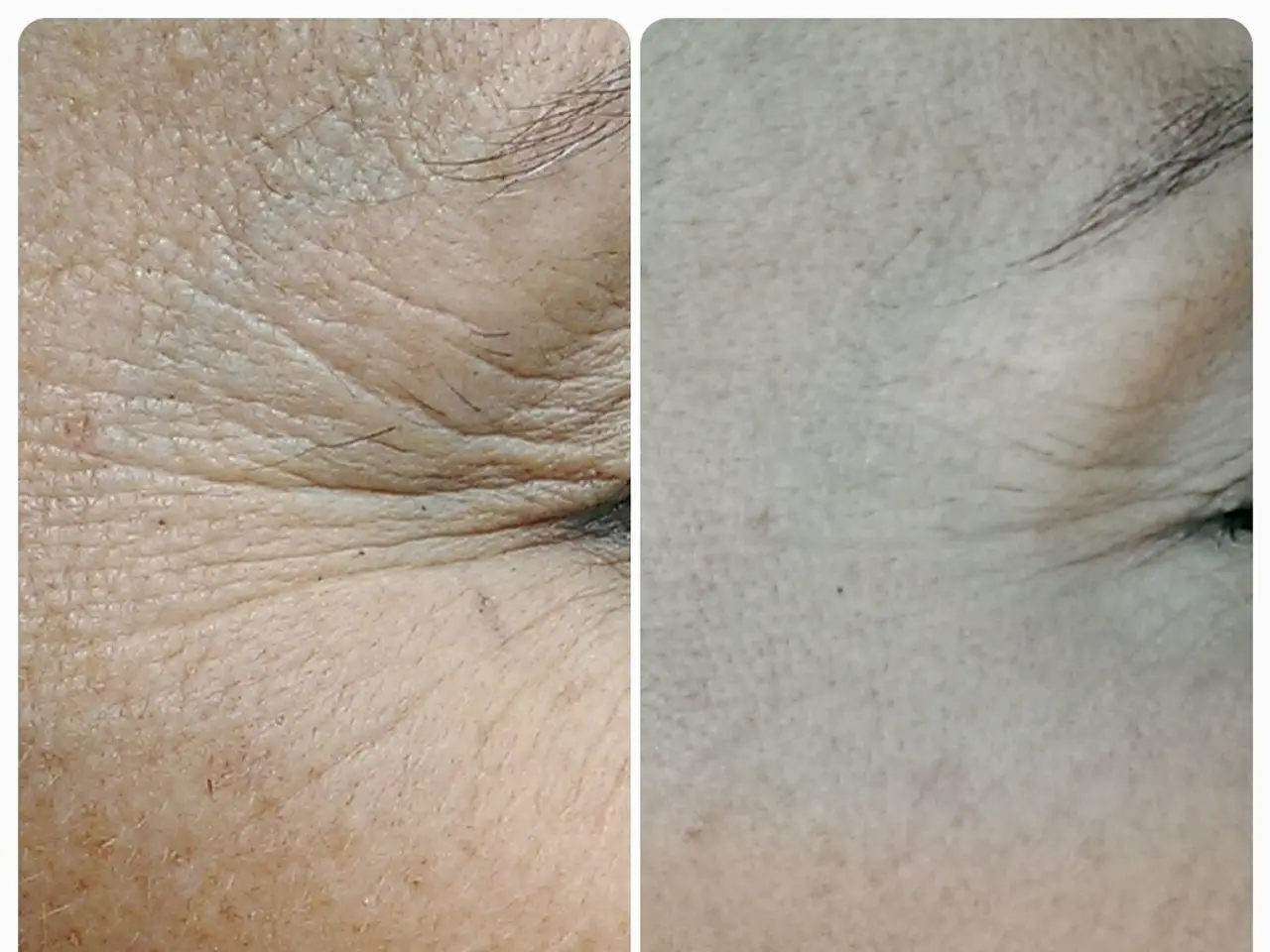Skin Care Routine from a Dermatologist's Perspective: Advice and Regimen
In the realm of skincare, one size does not fit all. Dermatologists and the American Academy of Dermatology Association recommend a personalised approach to skincare, taking into account factors such as skin type, tone, age, and any skin conditions.
For those with oily skin, a foaming cleanser with salicylic acid and lightweight, non-comedogenic gel moisturizers can help control shine and avoid heavy creams or oils. Dry skin, on the other hand, benefits from cream-based cleansers to preserve natural oils and moisturizers containing hyaluronic acid or ceramides. Combination skin requires a balanced approach: gentle cleansers, lightweight moisturizers on oily areas, and richer creams on dry spots. Sensitive skin needs fragrance-free, hypoallergenic products with calming ingredients like aloe vera or oatmeal.
Daily routines generally include cleansing, applying antioxidant serums (like vitamin C), moisturizing, and applying broad-spectrum mineral sunscreen tailored to skin tone. In the evenings, gentle cleansing followed by hydrating serums (e.g., hyaluronic acid), retinol (if suitable), and peptide-containing moisturizers is advised. Adjust products based on individual skin response and concerns such as acne, dark spots, or aging signs with targeted treatments like niacinamide or retinol.
Middle-aged and older adults are advised to wash their face twice a day, moisturize, avoid indoor tanning, smoking, and maintain a healthy diet. For those in their 60s or 70s, fragrance-free products, a thicker moisturizer, and wearing sunscreen and protective clothing are recommended.
For males and anyone who shaves, washing face morning and evening, after sweating, and using a moisturizing shaving cream is essential. To prevent issues like ingrown hairs, razor burn, or razor bumps, use a single- or double-blade razor and avoid stretching skin when shaving.
Skin concerns or advice about tailoring a skin care routine should be directed to a dermatologist. If a person notices any unusual changes that might indicate skin cancer, make an appointment with a dermatologist.
Protecting the lips is also important for skincare. Use a lip balm or product with an SPF of 30 or above before going outside. Hyperpigmentation, which can develop due to various factors such as pimples, healing injury, certain medications, product that irritates skin, changes in hormones, or pregnancy, can be addressed with glycolic acid, azelaic acid, kojic acid, retinoids, and vitamin C.
For whole-body skin care, cleansing with mild, fragrance-free product, exfoliating, moisturizing, applying sunscreen, and wearing protective clothing are key. Remember, consistency is key in a skincare routine.
Lastly, it's crucial to prioritize sun protection, whether it's through sunscreen, protective clothing, or avoiding peak sun hours. Regular check-ups with a dermatologist can also help maintain healthy skin and address any concerns promptly.
- Sensitive or oily skin requires skincare products that are fragrance-free and non-comedogenic, respectively, for optimal results.
- Hyaluronic acid and ceramides are beneficial ingredients in moisturizers for those with dry skin, helping to preserve natural oils.
- Combination skin requires a balanced skincare routine, featuring lightweight moisturizers on oily areas and richer creams on dry spots.
- Dermatologists recommend a personalized skincare routine based on factors like skin type, tone, age, and conditions such as rosacea.
- In addition to skincare, wellness routines like fitness and exercise, health-and-wellness, and mens- or womens-health play a role in maintaining overall skin health.
- Aging signs, acne, dark spots, and other skin concerns can be addressed with targeted treatments like niacinamide or retinol in a skincare routine.
- The skincare routine for middle-aged and older adults involves washing faces twice daily, moisturizing, and avoiding indoor tanning and smoking.
- For males or anyone who shaves, washing faces multiple times daily, using a moisturizing shaving cream, and avoiding stretching skin when shaving can help prevent irritation.
- Protecting the lips with a product containing SPF is important for maintaining good skincare habits, just like sun protection for the rest of the body.




